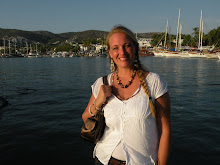At one point in time, Professor Jensen was helping one of his students find a journal were they could submit research. He was surprised to find one called, "The Journal Of Experimental Education". After he published the article, he realized that this kind of learning is the basis of what we refer to as common sense. It is important to call this learning to your attention. It should not be overlooked.
Same daughter: Mom, how much help were those books you read and the classes?
Same mother: Of course they helped but, experience or learning from day to day has proven to be the most valuable kind of learning.
Do you think there were no good parents or marriage partners before there were classes and books on understanding each other?
Daughter: But, is this kind of learning reliable and valid?
Mother: Well, thousands each day make life and death decisions based on this kind of knowledge ans do so with equal or more confidence than decisions based on academic information. I use this knowledge first and even doubt other information if it is not in harmony or consistent with what I know from my years of experience.
Daughter: Do you think that what you said is a little self aggrandizing?
Mother: Now that you mention it, yes, it sounds that way. Sorry, but wasn't it you who told me that Dad thought I understood him best? I never found your dad in anything I read!
There is a kind of knowledge which comes from experimental living. This is the living we do from infancy to death. We live and interact with people. We learn from meeting them and accepting them in a way which they become part of our experiential world.
Experiential refers to the way that we interpret everyday objects. events, and people as they appear and as they present themselves to us. This is definitely informational learning. Perhaps it is the most important type of learning that brings about an understanding of others and our self.
In addition tot he direct experiential living we have, one on one with the objects of the world and other people there are interactions with the knowledge and truth statements that exists in our culture. Here we find information by reading literature,listening to wise people, reflecting and introspecting on our daily observations, paying attention to our traditions, recalling and observing interactions of people with each other, reading, religious practices and instruction, and all the other ways we learn in our jobs, schools, churches, and private lives.
These interactions and learning gradually accumulate to tell us much about who we are and the people we live with. We come to know individuals directly, but we also acquire certain abstractions and concepts about people in general. Some of us are much better attuned, interested, and intellectually capable of benefiting from this kind of learning, and usually such people share what they have learned. Thus we learn from one another and from our own experiences a type of truth and knowledge which is unequaled and irreplaceable for optimal understanding in your relationships.


No comments:
Post a Comment